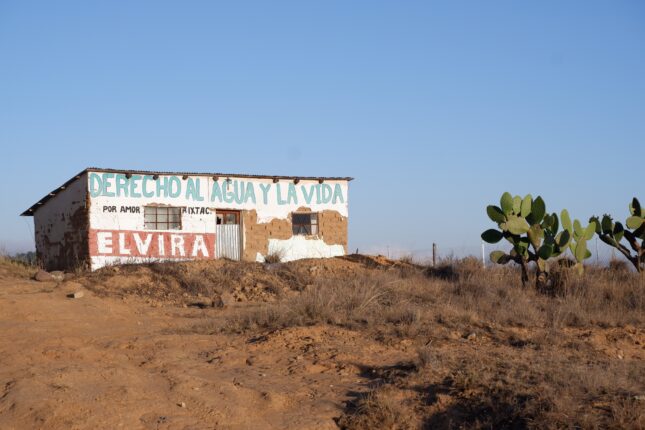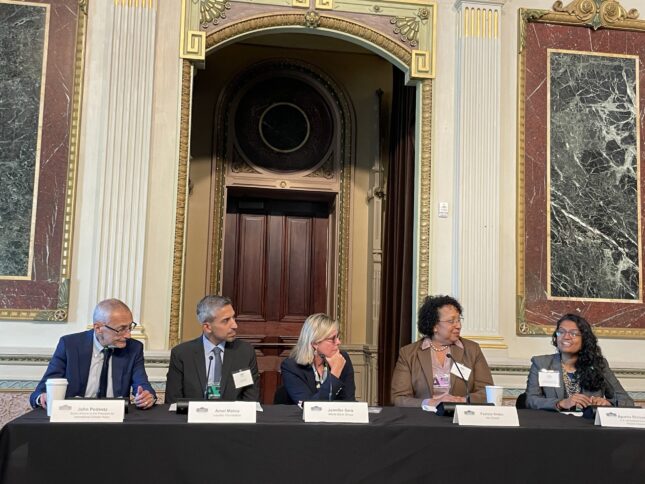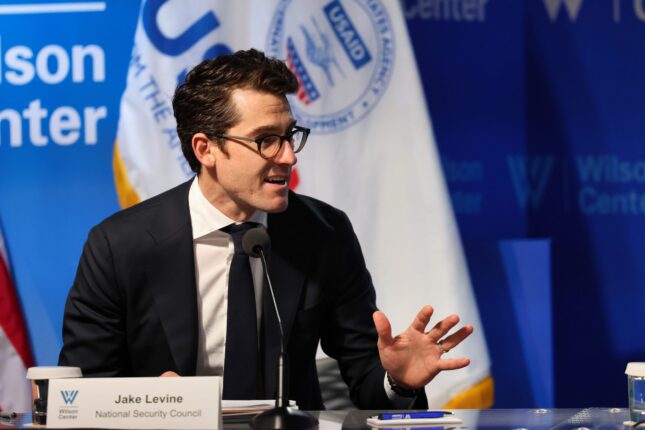-
ECSP Weekly Watch | January 27 – 31
›
A window into what we’re reading at the Wilson Center’s Environmental Change and Security Program
Declining Fish Stocks Threaten Lake Tanganyika Fishing Communities (Al Jazeera)
For the millions who live on the shores of Lake Tanganyika, fishing is a way of life that has sustained generations. However, recent declines in fish production in the world’s largest freshwater lake have devastated Tanzania’s fishermen and prompted questions of the sustainability of the decades-long practice.
-
A Proposal for SDG 18: Integrating Indigenous Knowledge
›
Fifty-three years have passed since the 1972 United Nations Stockholm Conference on the Human Environment that led to the establishment of the United Nations Environment Program (UNEP). Yet a recent UN report describes the global efforts to meet the Sustainable Development Goals (SDGs) created to articulate aims and track progress over the past decade as “alarmingly insufficient.”
-
ECSP Weekly Watch | January 13 – 17
›
A window into what we’re reading at the Wilson Center’s Environmental Change and Security Program
The Success of Community-based Conservation in Africa (Yale 360)
Across Africa, herders once seen as threats to wildlife have now become vital conservationists. In a transformative shift from “fortress conservation” to community stewardship, they are protecting iconic species like elephants and lions as they coexist with their livestock.
-
ECSP Weekly Watch | January 6 – 10
›
A window into what we’re reading at the Wilson Center’s Environmental Change and Security Program
Room for Justice in Vietnam’s Energy Transition? (The Diplomat)
Vietnam’s crackdown on environmental leaders such as Hoàng Thị Minh Hồng on disputed charges raises significant concerns about human rights, transparency, and civil society’s role in its energy transition. These arrests have garnered international attention, but Vietnam’s government argues that they had nothing to do with environmental work. And while Hoàng and other activists have been released, their work remains curtailed. The message is clear: you’re not welcome here.
-
Low-Carbon Transitions: A Spur (and a Solution) to Colonial Violence?
›
At the recent G20 meeting in June 2024 in Rio de Janeiro, United Nations Secretary General António Guterres gave an ominous warning: “Unless we limit global temperature rise to 1.5 degrees Celsius, spiraling disasters will devastate every economy.” Guterres implored governments to “speed-up the just transition from fossil fuels to renewables,” and declared that “the end of the fossil fuel age is inevitable.”
-
The Arc | Inclusive Green Energy: Accelerating Just Transitions
› In today’s episode of The Arc, we are featuring a panel discussion on how to accelerate just energy transitions around the globe from the Forum on Advancing Inclusive Climate Action in Foreign Policy and Development, hosted by the Wilson Center in collaboration with the White House and USAID’s Bureau for Humanitarian Assistance, with support from the USAID Climate Adaptation Support Activity.
In today’s episode of The Arc, we are featuring a panel discussion on how to accelerate just energy transitions around the globe from the Forum on Advancing Inclusive Climate Action in Foreign Policy and Development, hosted by the Wilson Center in collaboration with the White House and USAID’s Bureau for Humanitarian Assistance, with support from the USAID Climate Adaptation Support Activity. -
The Arc | Financing Inclusive Climate Action: Investing in and Empowering Local Communities
› In today’s episode of The Arc, we’re sharing a panel discussion from the Forum on Advancing Inclusive Climate Action in Foreign Policy and Development, an event hosted by the Wilson Center in collaboration with the White House and USAID’s Bureau for Humanitarian Assistance, and with support from the USAID Climate Adaptation Support Activity.
In today’s episode of The Arc, we’re sharing a panel discussion from the Forum on Advancing Inclusive Climate Action in Foreign Policy and Development, an event hosted by the Wilson Center in collaboration with the White House and USAID’s Bureau for Humanitarian Assistance, and with support from the USAID Climate Adaptation Support Activity. -
ECSP Weekly Watch | December 2 – 6
›
A window into what we’re reading at the Wilson Center’s Environmental Change and Security Program
Famine Prevention Systems Prove Insufficient (Reuters)
The Integrated Food Security Phase Classification (or IPC) is a global partnership that monitors hunger levels. It is widely recognized for its five-phase classification system of food insecurity that ranges from “minimal” (Phase 1) to “famine” (Phase 5). While the IPC’s aim is to inform humanitarian organizations at an early stage of a crisis to allow them streamline the flow of aid, the worsening global hunger levels experienced this year have pointed to shortcomings in existing prevention systems.
Showing posts from category livelihoods.





 In today’s episode of The Arc, we are featuring a panel discussion on how to accelerate just energy transitions around the globe from the Forum on Advancing Inclusive Climate Action in Foreign Policy and Development, hosted by the Wilson Center in collaboration with the White House and USAID’s Bureau for Humanitarian Assistance, with support from the USAID Climate Adaptation Support Activity.
In today’s episode of The Arc, we are featuring a panel discussion on how to accelerate just energy transitions around the globe from the Forum on Advancing Inclusive Climate Action in Foreign Policy and Development, hosted by the Wilson Center in collaboration with the White House and USAID’s Bureau for Humanitarian Assistance, with support from the USAID Climate Adaptation Support Activity. In today’s episode of The Arc, we’re sharing a panel discussion from the Forum on Advancing Inclusive Climate Action in Foreign Policy and Development, an event hosted by the Wilson Center in collaboration with the White House and USAID’s Bureau for Humanitarian Assistance, and with support from the USAID Climate Adaptation Support Activity.
In today’s episode of The Arc, we’re sharing a panel discussion from the Forum on Advancing Inclusive Climate Action in Foreign Policy and Development, an event hosted by the Wilson Center in collaboration with the White House and USAID’s Bureau for Humanitarian Assistance, and with support from the USAID Climate Adaptation Support Activity.


